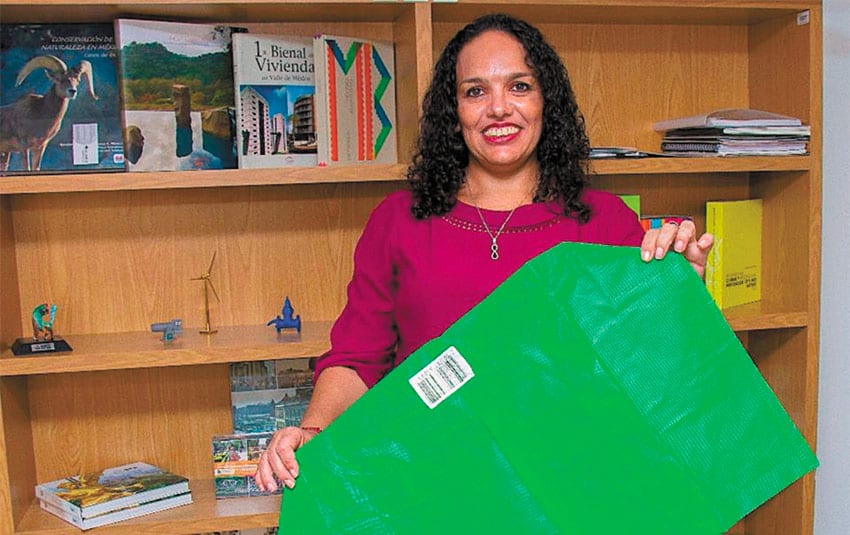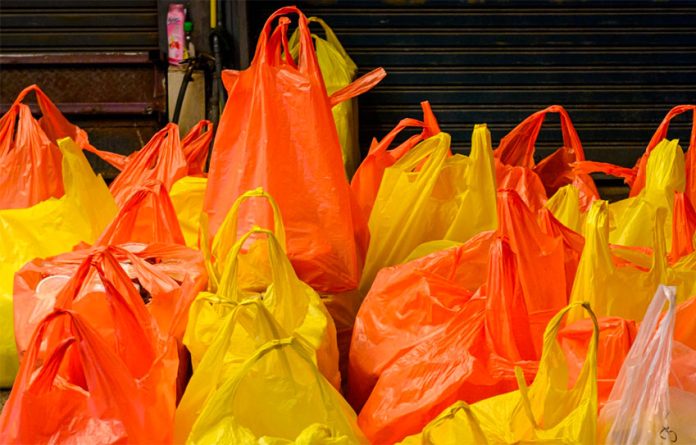First it was plastic shopping bags. Then straws and cups. Now the latest victims to fall under Mexico City’s drive against single-use plastics are tampons — and the capital’s women.
Since the beginning of the year, the capital has banned the sale of the menstrual products until their plastic applicators are replaced by more environmentally-friendly materials. The city government said the decision was a key part of the green agenda it has pursued since taking office two years ago. But it has nonetheless taken many of its 5 million female residents by surprise as the sanitary products disappeared from shelves this week.
“This is punishing women,” said Chiara Gómez, a student. “I didn’t know they were going to do this — a lot of people depend on them. And it’s a bit strange that they are starting with tampons when there are other things that use a lot of plastic, like unnecessary packaging.”
Mexico City’s ubiquitous juice stands now urge customers to bring their own containers or buy plastic bottles, but many markets in the capital still use plastic bags or serve food with plastic forks and coffee shops still often put plastic lids on takeaway beverages.
Pharmacies and supermarkets this week displayed sanitary towels and menstrual cups, but no tampons. Applicator-less tampons are not generally available or used: they can be purchased online, via sites such as Mercado Libre and Amazon, but prices as high as US $3.40 per tampon put them out of reach of many in a country where women work more but earn less than men and are more often employed in informal jobs.

One pharmacist in the capital laid out the official ruling to explain why tampons had vanished from shelves — “We’re not allowed to display tampons” — before quietly offering to sell some under-the-counter “while stocks last.”
Feminist organizations, which are separately pushing to make sanitary protection free of value added tax, say the government should have taken a more gradual approach before imposing the ban.
“Of course we understand the environmental side of this,” said Anahí Rodríguez, spokeswoman for Menstruación Digna (Dignified Menstruation), an NGO. “It’s the government’s responsibility to take steps to protect the environment. But they should have made sure there were tampons available with applicators that used an alternative to plastic, at an accessible price, before they withdrew them.”
Men also criticized the move. “As if women didn’t have enough problems, now the government has given them another: no tampons,” Carlos Elizondo, a political science professor at Tec de Monterrey university, wrote on Twitter. “In other countries, they have zero VAT. Here, they are banned — and in the middle of a pandemic too.”
Lillian Guigue, director-general for impact regulation and environmental regulation at the city’s environment ministry, insisted the ban had been announced long in advance as part of the green policy agenda of Claudia Sheinbaum, the city’s first woman mayor and a climate change scientist.
Guigue said she had been negotiating with producers but Covid-19 was slowing down their ability to reformulate applicators without using plastic. Until then, “we all have to do our bit . . . if we don’t make an effort with the products we consume, we are destroying not only our future but that of all generations after us,” she told the Financial Times.
For many, especially young women, that means reusable menstrual cups. Michelle Schad, a student, said these were safer and she applauded the move to ban plastic tampon applicators “because they contaminate a lot and do a lot of damage.”
But in a country where the coronavirus pandemic has pushed an estimated 10 million more people into poverty, some cannot afford them and, in any case, 260,000 homes in Mexico City lack running water.
Dignified menstruation “becomes a privilege, not a right, with these measures,” said Rodríguez.
Her NGO has been fighting to have Mexico’s 16% sales tax waived from sanitary protection — a move backed by Olga Sánchez Cordero, Mexico’s interior minister. Legislators refused last year, but the Supreme Court this month agreed to review whether the tax was unconstitutional.
In the meantime, Guigue urged women to “rally behind the cause” for the sake of the planet. “It’s not about stopping having the products we need,” she said. “It’s about making better choices.”
© 2021 The Financial Times Ltd. All rights reserved. Please do not copy and paste FT articles and redistribute by email or post to the web.
